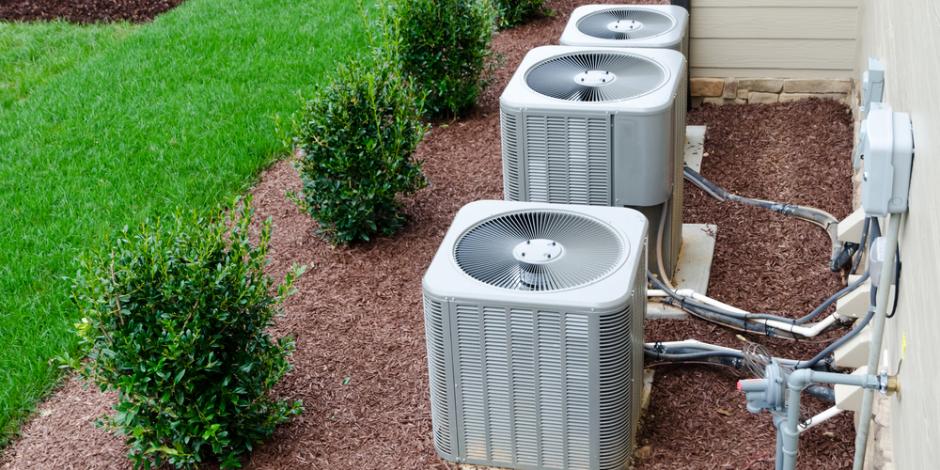
Energy costs have a tendency to skyrocket as soon as we turn on our air conditioning in the spring, but they don’t have to.
Installing an energy efficient central air conditioner or heat pump can help you stay cooler and more comfortable during the hot summer months while potentially reducing your energy costs.
Keep reading to learn everything you need to know about air conditioners and energy efficiency, from what makes an AC efficient to how to keep your cooling system running at peak performance.
What Is an Energy Efficient Air Conditioner?
Energy efficient air conditioners use less electricity to keep your home cool. They have advanced features, like variable-speed compressors, that reduce energy consumption without hurting performance.
This leads to many benefits, including:
Lower monthly electricity bills
Reduced carbon footprint
Better cooling and dehumidification
How to Choose an Energy Efficient Air Conditioner
Not all air conditioners are created equal when it comes to efficiency. Here’s what to think about when choosing a new system:
Consider Heat Pumps vs Central AC
If you’re shopping for a new air conditioner, it’s a great time to consider upgrading to a heat pump or mini split heat pump instead.
Heat pumps provide more bang for your buck than a traditional central air conditioner because they can heat and cool your home, so you get two HVAC upgrades for the price of one. They’re also often stronger, longer-lasting, and more energy efficient than central ACs.
Look at Energy Efficiency Ratings
Energy efficiency ratings are an easy way to evaluate AC system performance. When comparing models, look for:
SEER2 - The Seasonal Energy Efficiency Ratio 2 (SEER2) is the most common measure of efficiency for central air systems and heat pumps. The higher the SEER2 rating, the more energy efficient the unit.
ENERGY STAR - Air conditioners and heat pumps with ENERGY STAR certification have been independently verified to meet energy efficiency standards set by the Environmental Protection Agency (EPA).
Prioritize Proper Sizing
One of the most overlooked aspects of cooling system efficiency is choosing the right size. Bigger is not always better. An oversized unit may cool your home too quickly without properly dehumidifying it, while an undersized unit will struggle to keep up.
At CARJON, we take the time to size your new air conditioner or heat pump properly so you get the most out of your investment.
Tips to Improve Your Cooling System’s Energy Efficiency
Whether you just invested in a new, energy efficient AC or heat pump, or your existing system still has some life left, there are a few things you can do to help it run as efficiently as possible.
1. Use a Smart Thermostat
A smart thermostat allows you to schedule temperature changes based on your routine, automatically adjusting when you’re away or asleep. This reduces energy use without sacrificing comfort.
2. Change or Clean Your Air Filter
Dirty filters restrict airflow, making your cooling system work harder than it needs to. Check your filter every 1–3 months and replace or clean it as needed. This simple step will improve energy efficiency and protect your system from unnecessary wear and tear, potentially increasing its lifespan.
3. Schedule Regular AC Maintenance
Just like a car, your AC system needs regular tune-ups. An annual maintenance visit from CARJON includes cleaning coils, checking refrigerant levels, and inspecting electrical components, all of which keep your system running efficiently and extend its lifespan.
Our HVAC maintenance agreements make it easy to stay on top of maintenance. We’ll remind you when you’re due for maintenance, and you’ll get priority scheduling, discounts on repairs, and more.
Is an Energy Efficient Cooling System Worth It?
Whether you’re replacing a dying AC or installing a cooling system for the first time, an energy efficient system is worth it. It will use less energy to run, which could save you money on your bills, while keeping your home more comfortable.
Plus, energy efficient ACs and heat pumps qualify for incentives. With the Energy Efficient Home Improvement Tax Credit, you can save:
Up to $600 when you install a qualifying energy efficient central air conditioner
Up to $2,000 when you install a qualifying heat pump
Congress is voting on new legislation that would eliminate the federal tax credit for heat pumps and energy efficient ACs at the end of 2025! Schedule your installation today to make sure you can take advantage of this opportunity to save.



